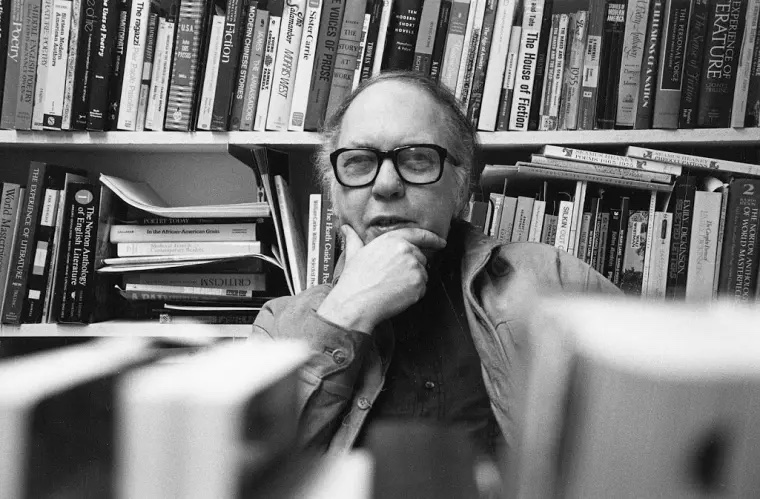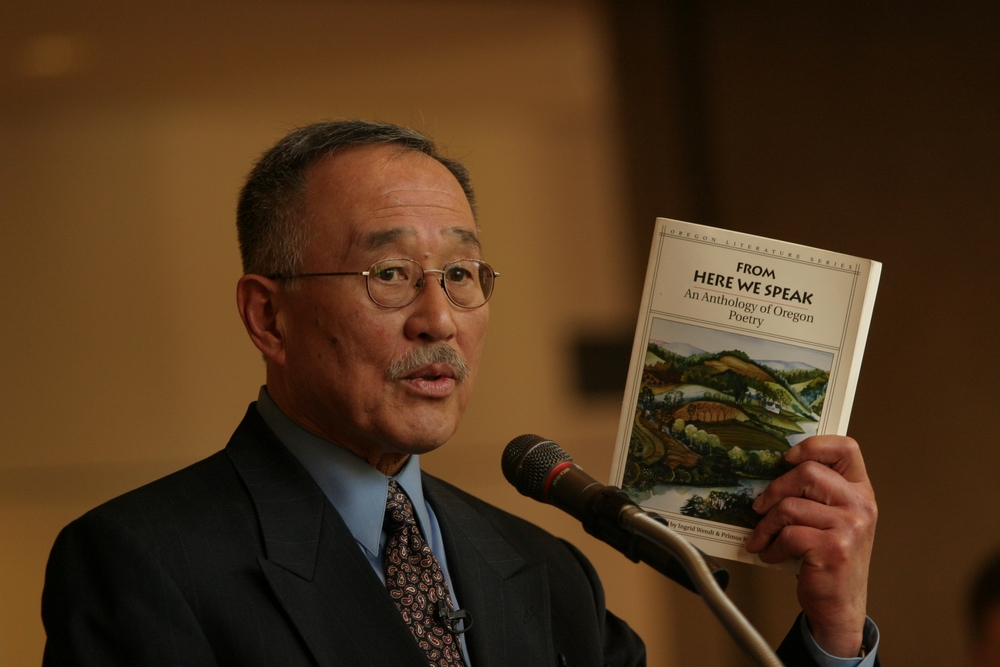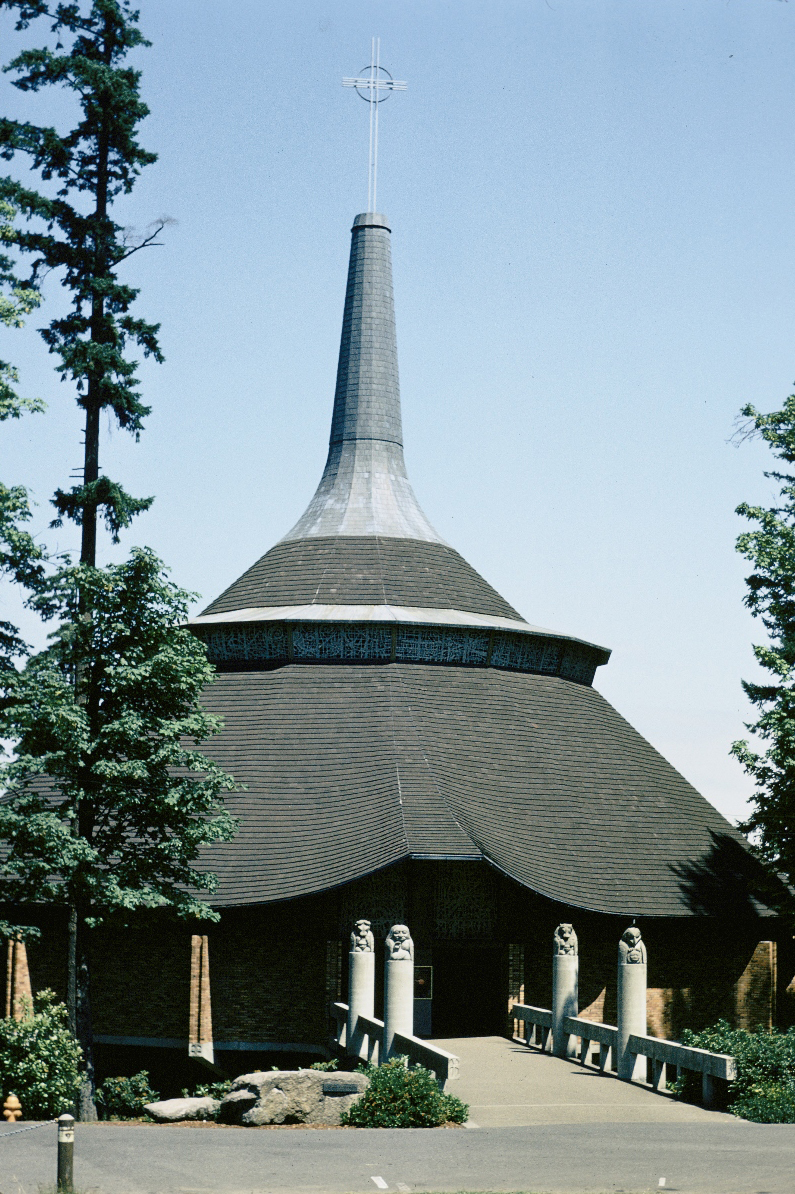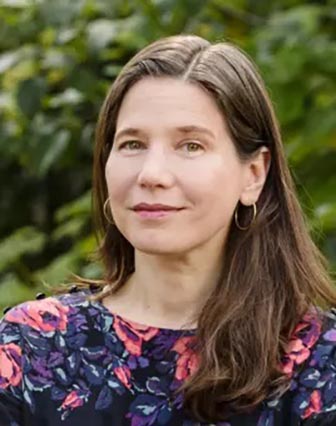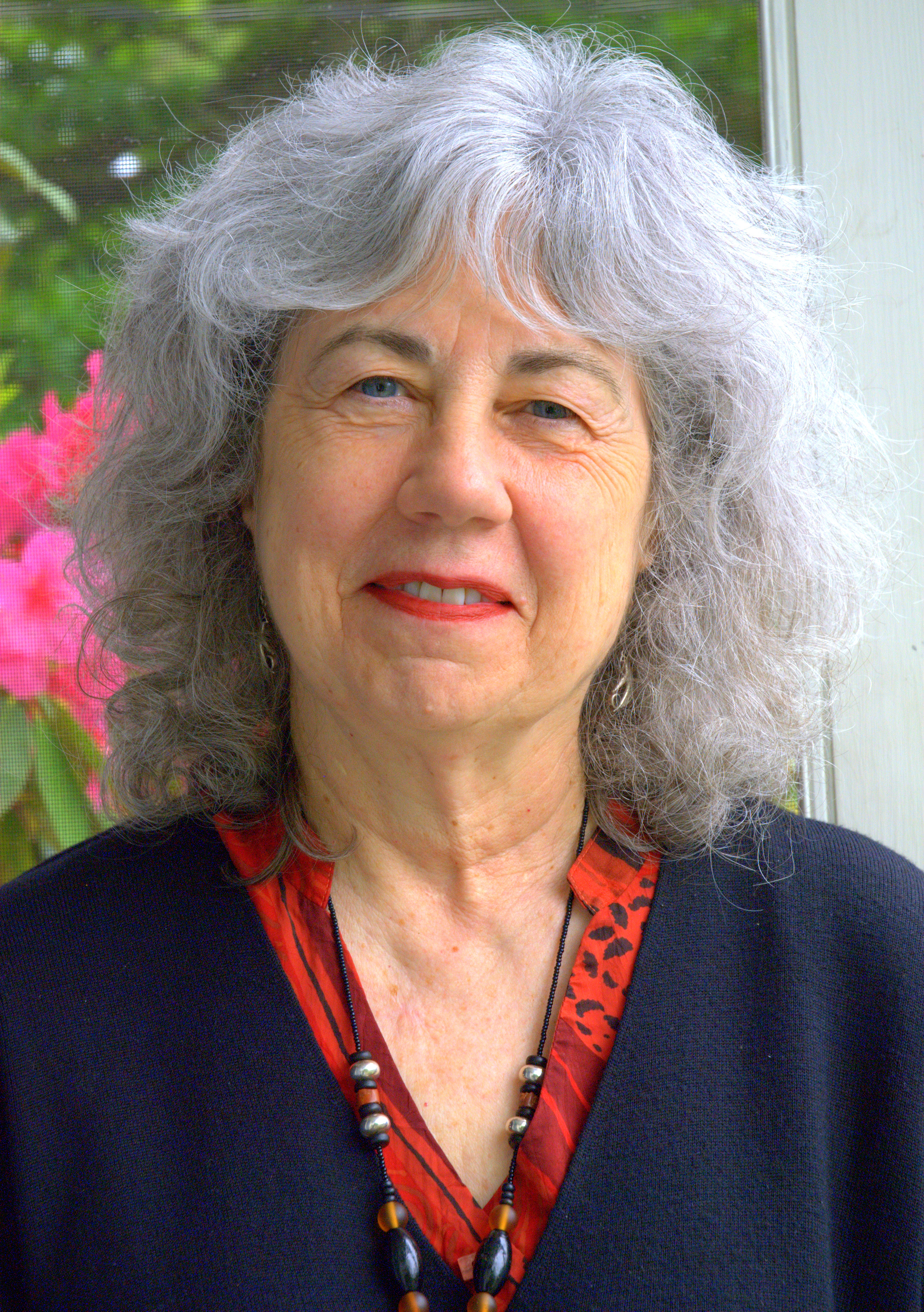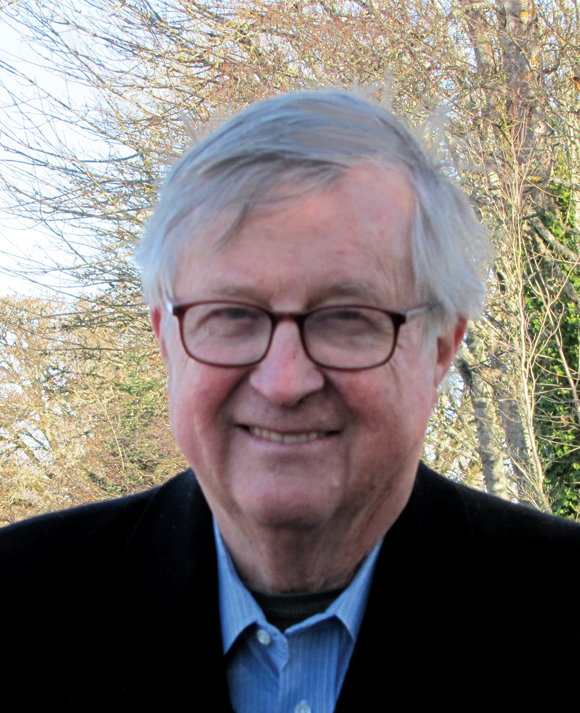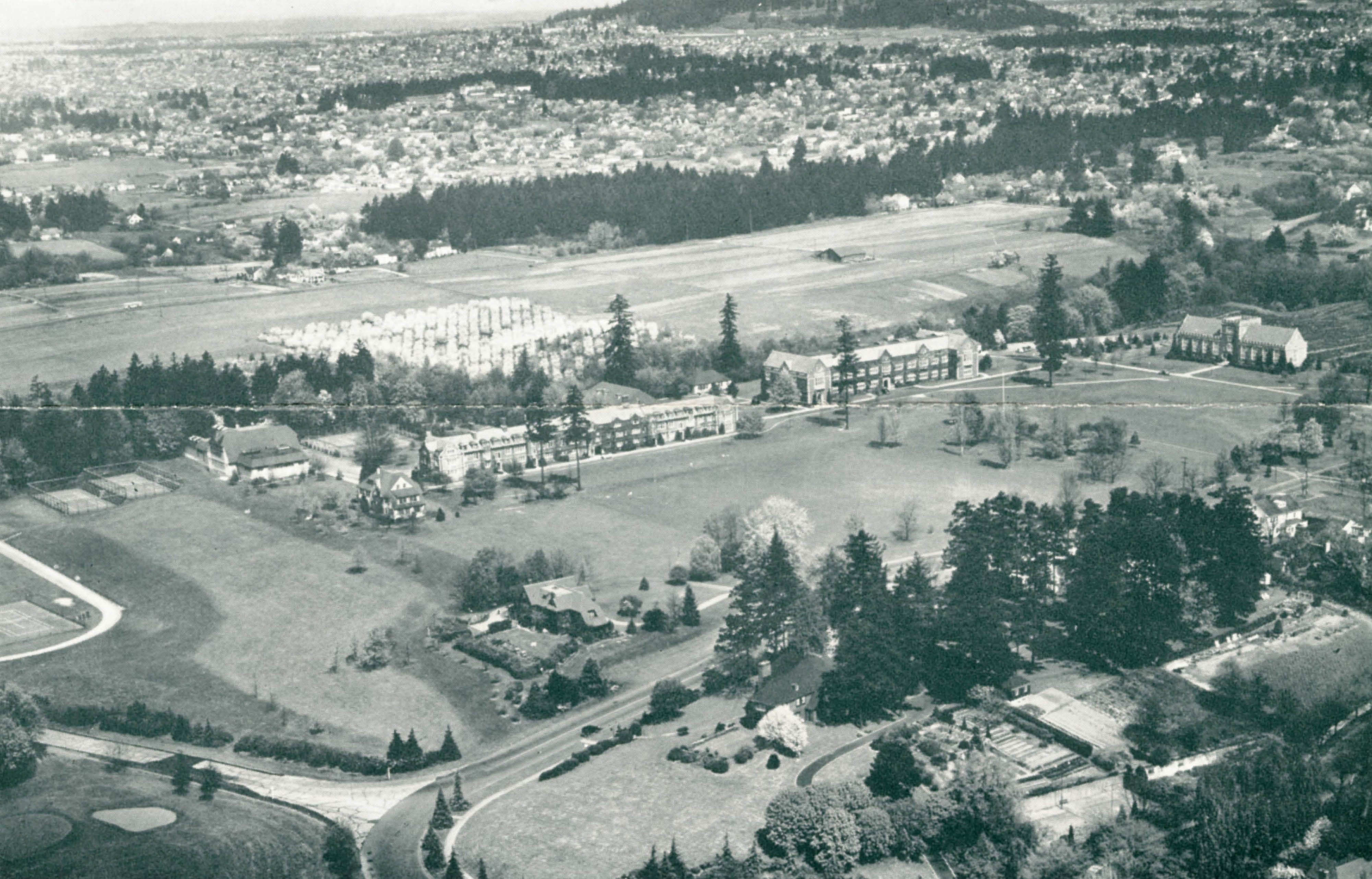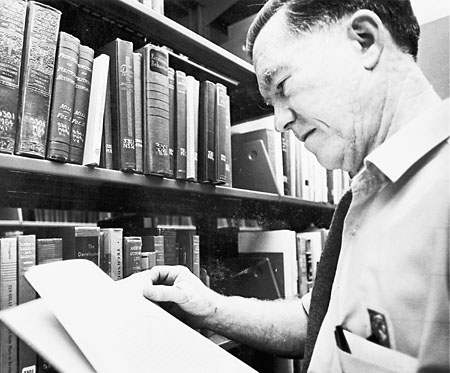Vern Rutsala’s poetry is an expression of Oregon and the West. His people are restless, and their journeys are often eastward for recovery, rather than westward for discovery. The language of his poetry is guided by his Irish and Finnish heritage and the cadences of small-town speech—allied to Walt Whitman—and the use of local material, social history, and the West of personal recollection. Reading his poetry feels like eavesdropping on a diarist. The author of seventeen books of poetry, Rutsala was a longtime professor at Lewis & Clark College in Portland and the recipient of many awards, including the 2014 C.E.S. Wood Distinguished Writer Award from Literary Arts’ Oregon Book Awards.
Rutsala was born in McCall, Idaho, on February 5, 1934. After being displaced by the Great Depression, the Rutsala family moved to Vanport, Oregon, in 1942, and Vern’s father worked in the Kaiser Shipyards. By 1950, they had settled in Milwaukie, where Vern was student body president at Milwaukie High School and the quarterback and captain of the football team. He spent a year at Portland State University before transferring to Reed College, where he studied with poet Kenneth O. Hanson. He received a bachelor of arts degree in 1956. While at Reed, Rutsala met Joan Colby, whom he married in 1957. They remained together for fifty-seven years and raised three children.
Drafted into the U.S. Army in 1956, Rutsala edited a weekly army newspaper in Munich, which left him time to write poetry in the evenings and on weekends. After being released from duty in 1958, he enrolled in the Iowa Writers’ Workshop, where he was a contemporary of Oregon poet Lawson Fusao Inada. He received a master of fine arts degree in 1960 and taught English and writing at the University of Redlands in California until a letter of recommendation from poet Donald Justice, his teacher at the University of Iowa, reached William Stafford, who was teaching at Lewis & Clark College. Rutsala took a part-time job at Lewis & Clark in 1961, which after a year became a fulltime appointment in the Department of English, giving him the opportunity to help start its creative writing program. He retired in 2004 after forty-three years of teaching.
Rutsala established his voice in his first book, The Window (1964). His subjects were the small victories and failures of common people, written in what the Northwest Review called “as tight a series of images on the page as you will encounter anywhere.” The judge for The Moment’s Equation, a 2005 finalist for the National Book Award, wrote that in Rutsala’s America “there are startling moments, keen equations, but there is always time for laughter, room for reflection. Each poem journeys to a destination. With a remarkable deftness and an unerring sense of direction, Vern Rutsala gets us there.” Rutsala’s prose poems, written in paragraphs that express a skepticism of humans’ inflated claims to certainty, acknowledge that there is no greater achievement than acceptance without contempt or illusion.
Sunday (excerpt)
Up early while everyone sleeps
I wander through the house,
pondering the eloquence
of vacant furniture, listening
to birdsong peeling
the cover off the day…
(The Window, 1964)
Rutsala published over seven hundred poems in magazines such as Atlantic Monthly, The New Yorker, Poetry, Harper’s, Chicago Review, Mississippi Review, The Paris Review, and New Letters. Throughout his career, he used his poetry to dwell on and in the daily lives of the people he lived among. “For all the casual language, there is a precision of metaphor” in Rutsala’s work, literary critic R. D. Spector wrote, “for all the quietness, a moving force, and for all the commonplace experiences, a genuine significance....Rutsala is a poet of the very real world."
Rutsala received a Guggenheim Fellowship, two fellowships from the National Endowment for the Arts, and the only Masters Fellowship given by the Oregon Arts Commission. His work was honored with the Northwest Poets Prize in 1975; the Carolyn Kizer Poetry Prize, for poems he wrote in the 1980s and published in How We Spent Our Time (2006); the Stafford/Hall Award for Poetry from the Oregon Book Awards for Selected Poems (1992); the Juniper Prize for Little-Known Sports (1994). His The Moment’s Equation (2004) won the Richard Snyder Memorial Prize and was a finalist for the National Book Award for Poetry.
Vern Rutsala received the C.E.S. Wood Distinguished Writer Award from the Oregon Book Awards in March 2014; he died soon after on April 2, 2014. His final book of poetry, The Long Haul, was published in 2015.
Sorry Roads (excerpt)
Their sorrow is something like
buyer’s remorse. They chose
their paths but now regret it,
realizing—too late—they could
have gone to the seashore
or forests of sweet pines.
(The Long Haul, 2015)
-
![]()
Vern Rutsala.
Courtesy Lewis & Clark College -
![]()
Little-Known Sports, By Vern Rutsala, 1994.
Courtesy University of Massachusetts Press
-
![]()
How We Spent Our Time, by Vern Rutsala, 2006.
Courtesy University of Akron Press
Related Entries
-
![Clemens Starck (1937–2024)]()
Clemens Starck (1937–2024)
As a poet and a carpenter, Clem Starck graced Oregon with his craftsman…
-
Lawson Fusao Inada (1938-)
Poet, writer, and educator, Lawson Fusao Inada is an emeritus professor…
-
![Lewis & Clark College]()
Lewis & Clark College
Lewis & Clark College, a private and academically selective liberal art…
-
![Mary Szybist (1970–)]()
Mary Szybist (1970–)
“With her intelligence and understated grace,” the Christian Science Mo…
-
![Paulann Petersen (1942-)]()
Paulann Petersen (1942-)
Paulann Petersen, Oregon’s sixth Poet Laureate, is an award-winning poe…
-
![Peter H. Sears (1937–2017)]()
Peter H. Sears (1937–2017)
Peter H. Sears, a poet and educator, served as Oregon Poet Laureate fro…
-
![Reed College]()
Reed College
Situated on 116 acres in southeast Portland, Reed College enrolls nearl…
-
![William Stafford (1914-1993)]()
William Stafford (1914-1993)
William Stafford, one of America’s most widely read poets, was born in …
Map This on the Oregon History WayFinder
The Oregon History Wayfinder is an interactive map that identifies significant places, people, and events in Oregon history.
Further Reading
Rutsala, Vern. The Window. Middleton, Conn.: Wesleyan University Press, 1964.
Rutsala, Vern. The Long Haul. Pittsburgh, Penn.: Carnegie Mellon University Press, 2015.
"Vern Rutsala." Poetry Foundation.
Berger, Brian. "Vern Rutsala: A Poet with Keen Senses." Portland Oregonian, May 17, 1981.
Shugrue, Jim. "Poet of Ordinary Mysteries." Reed Magazine, September 2014.

